
Gutter Guards
Gutter Guards
Can gutters get clogged with gutter guards?
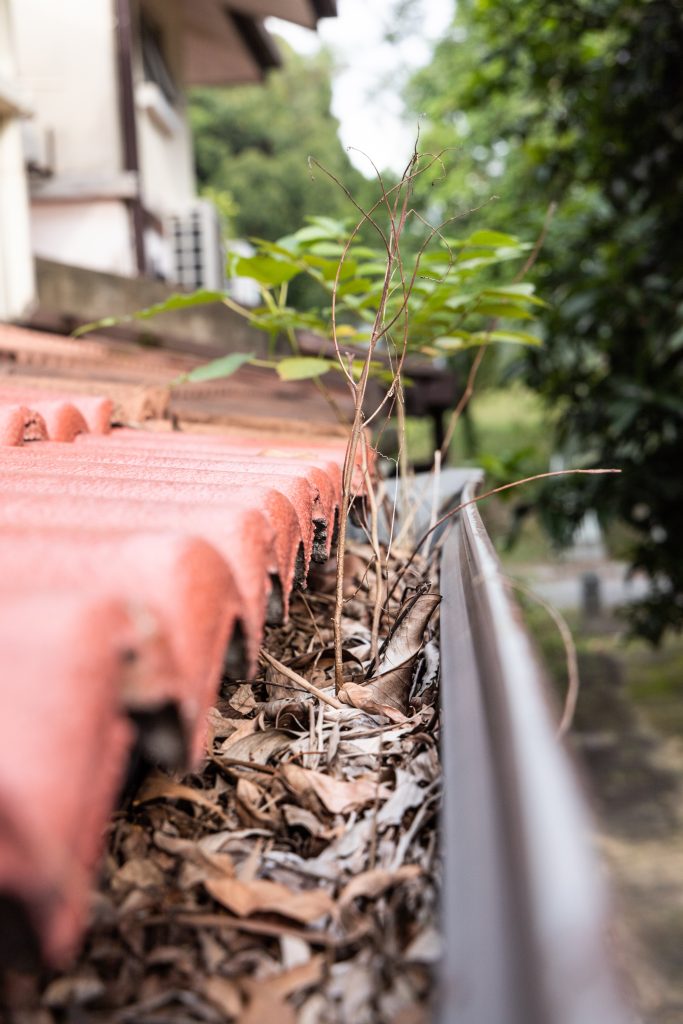
Cleaning the gutters is a homeowner’s nightmare. And keeping leaves and debris from clogging the gutters of your home is an ongoing problem. One way to alleviate the continual need to clean the gutters is to install a micro mesh gutter guard system. The initial cost of a gutter guard system may make you think twice, but the benefits of time and safety can far outweigh this cost.
As with any guttering system, there are pros and cons of gutter guards. These systems utilize a micro mesh guard over the gutter that will slow the accumulation of leaves, branches, and debris. However, these systems do not eliminate the collection of dirt and debris. Leaves and branches may not make it into the gutters, but because of the micro mesh system, they will collect on top of the gutter guard and cause problems with the appearance of your home. Therefore, the gutters of your home will still require cleaning from time to time.
Even though there are potential downfalls to having a gutter guard system installed, using a system for your gutters is still a wise and cost-efficient option for your home. Utilizing a gutter guard will reduce the frequency of cleaning the gutters, as well as minimize the amount of debris that can cause downspouts to clog and leak due to this type of build-up.
Do gutter guards cause problems?
If you are considering a gutter guard system for your home, you will need to consider some of the problems that can occur when using such a system. One problem to consider is the additional weight that a gutter guard installation will create on the gutter and fascia of the home. Over time, the tension of the gutter guard will put a strain on the fascia and cause it to bend, coil, or even rip off from the roof. Another issue that may be overlooked is a poorly designed or ill-fitting gutter guard. This can cause the gutter and roof to leak, causing more problems than just a build-up of debris.
Many homeowners make the mistake of trying to install a gutter guard system themselves that is purchased at a local home improvement store. Unfortunately, if not installed correctly, this too can cause major problems with leakage and damage to the fascia and roof and possibly the gutters themselves. This can result in added costs to the homeowner for removal of the gutter guard, repair of damage to the home, and the cost of the gutter guard.
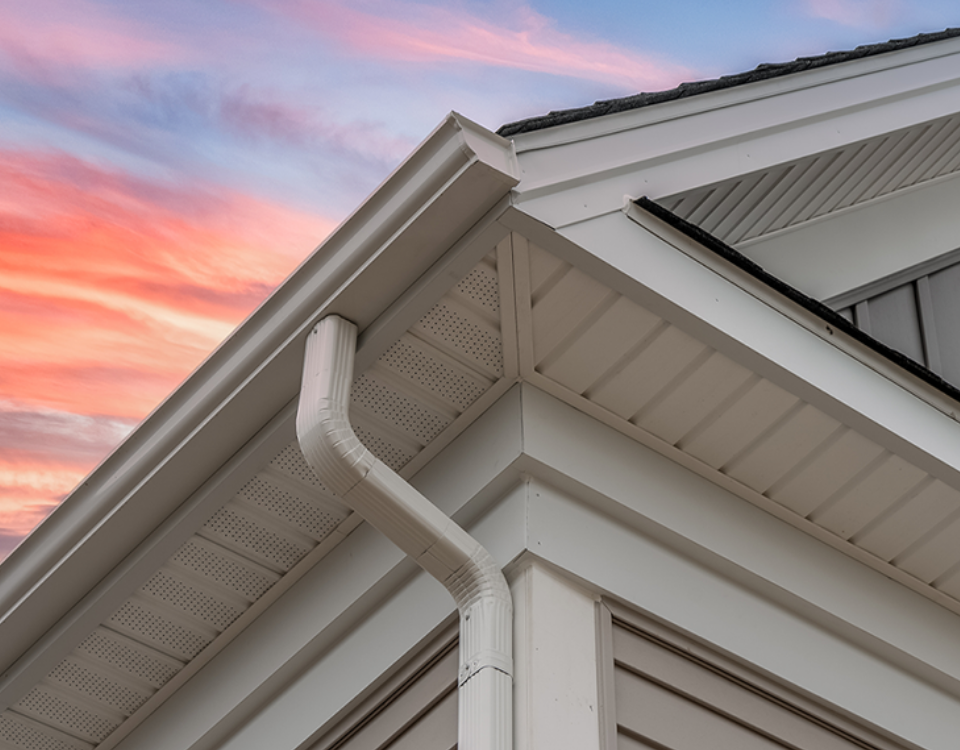

A gutter guard installation will help limit the amount of debris that enters the gutters, but it will also slow the flow of water. This can cause water to back up and begin to leak over the tops of the gutters, therefore, not reaching the downspouts to get rid of the water that can damage your roof, gutters, and fascia. It is important to select the best gutter guard system for your home. Weather conditions for your area need to be a source of consideration. If you live in an area that receives large amounts of rain and heavy downpours often, then you will need to install the gutter guard system that will accommodate this type of weather.
These are just a few of the problems to consider when purchasing a gutter guard system. Consider the best gutter guard that will be cost-efficient, and this will give you the optimal result for a gutter guard to work for your home.
Can gutter guards be installed in winter?
Yes. Having gutter guards installed in the winter is a cost-efficient means to keeping your gutters clear of snow and ice that freeze and thaw throughout the winter season. The micro mesh gutter guard will keep debris away from the gutters while draining any water that may accumulate. Choosing the best gutters for snow and ice will help to avoid unnecessary damage to eaves, soffits, fascia, and roofs.
During the winter season, homeowners may want to remove the gutter guards. Ice and snow can build up on top of the micro mesh gutter guard and cause extra weight to build up on the gutters and fascia. Freeze and thaw cycles can cause ice dams to form that will block the drainage of water from the gutters.
To avoid gutter guard repairs, it is best to find a gutter guard that will fit your gutters properly. This will ensure that the gutter guard will perform as they should.
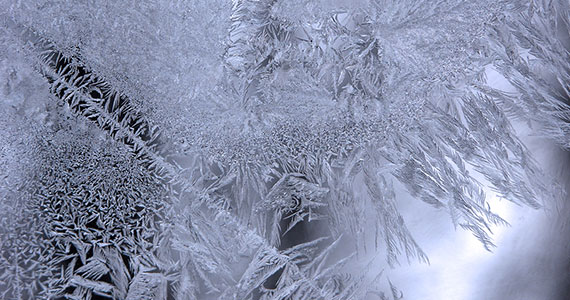
How long do gutter guards last?
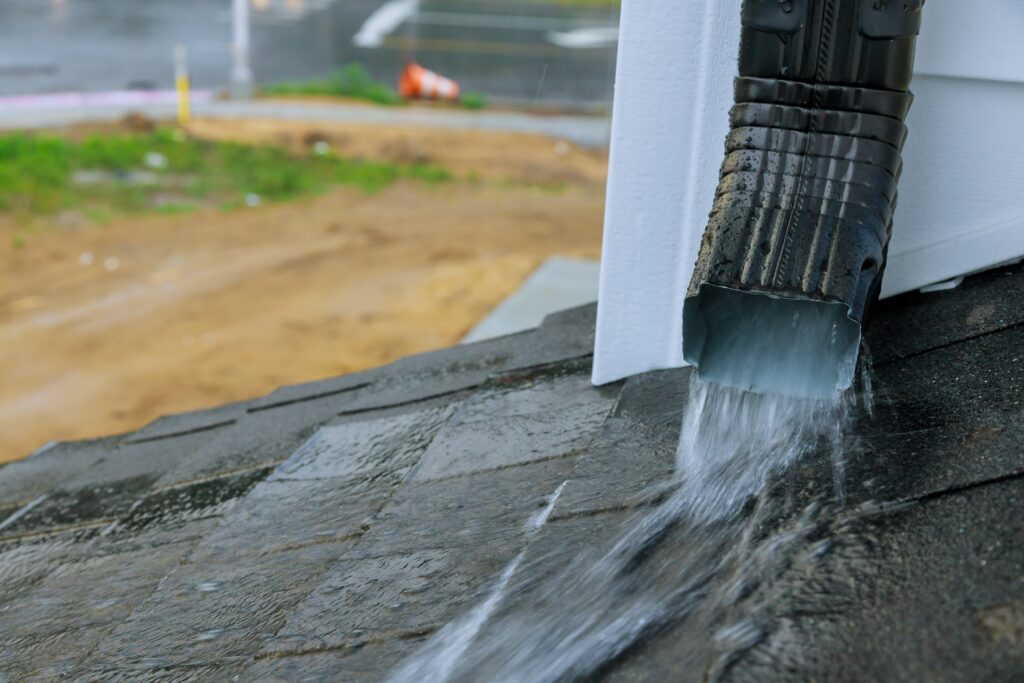
There are many factors that go into determining the longevity of a gutter guard system. It depends upon the material, the maintenance of the gutters, and the installation of the gutter guards. Given all these factors, a typical gutter guard system will last on average 20 years.
Gutter guard systems that are made from aluminum have the longest lifespan. These gutter guards won’t become brittle or rust from extreme weather conditions, such as snow, heavy rain, and debris. They won’t warp or bend from prolonged exposure to sunlight. Aluminum gutter guards are strong and durable. A high-quality gutter guard is made with a micro mesh that will significantly reduce the amount of debris that will enter the gutter.
Even though a gutter guard system is installed to prevent debris from entering the gutters, they will still need to be cleaned at least once or twice a year. Removing any debris that can build up on top of the guard, and making sure that the mesh is clean and clear, will help to prolong the life of the gutter guard.
As mentioned earlier, proper installation of the gutter guard system will also extend the life of the gutter guard. They can be installed by the homeowner, but there is an increased chance that the gutter guard will not be installed correctly and will result in damage to the home. Improper installation can cause leaks to the roof, eaves, and fascia. Using a professional gutter guard company can ensure that the gutter guard is installed properly and can issue a warranty in most cases.
There are many elements to consider when choosing a gutter guard for your home. The gutter guard system can be cost-efficient and last for many years to provide protection from debris.
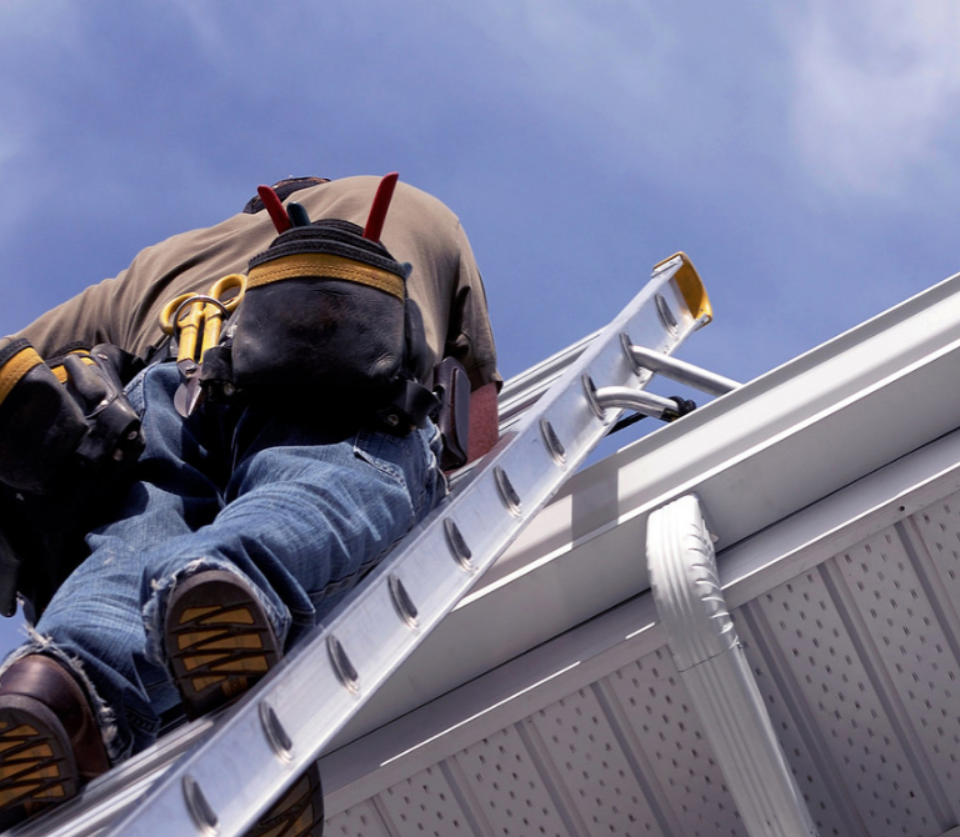
Do gutter guards work in heavy rain?

Yes. Gutter guards will work in heavy rains as long as you choose the best gutter guard for your home. There are many options when it comes to installing a gutter guard system. When looking for a gutter guard, you will want to search for a contractor that will install a system that properly fits your guttering. Since not all gutter guards are created equal, it is possible to get a worse gutter guard system for your home. Installing the wrong gutter guard can result in added expenses for the homeowner to have the gutter guard removed and/or repairs that will need to be made to your home.
It is always good to consult with an expert in order to find the best gutter guards for your home. There are so many options when it comes to gutter guards, it can be overwhelming. From the types of micro mesh gutter guards to the cost of gutter guard removal to the maintenance of your gutter guard system. A professional will be able to help you decipher the pros and cons of gutter guards and what system will be the best and most cost-efficient gutter guards for your home.
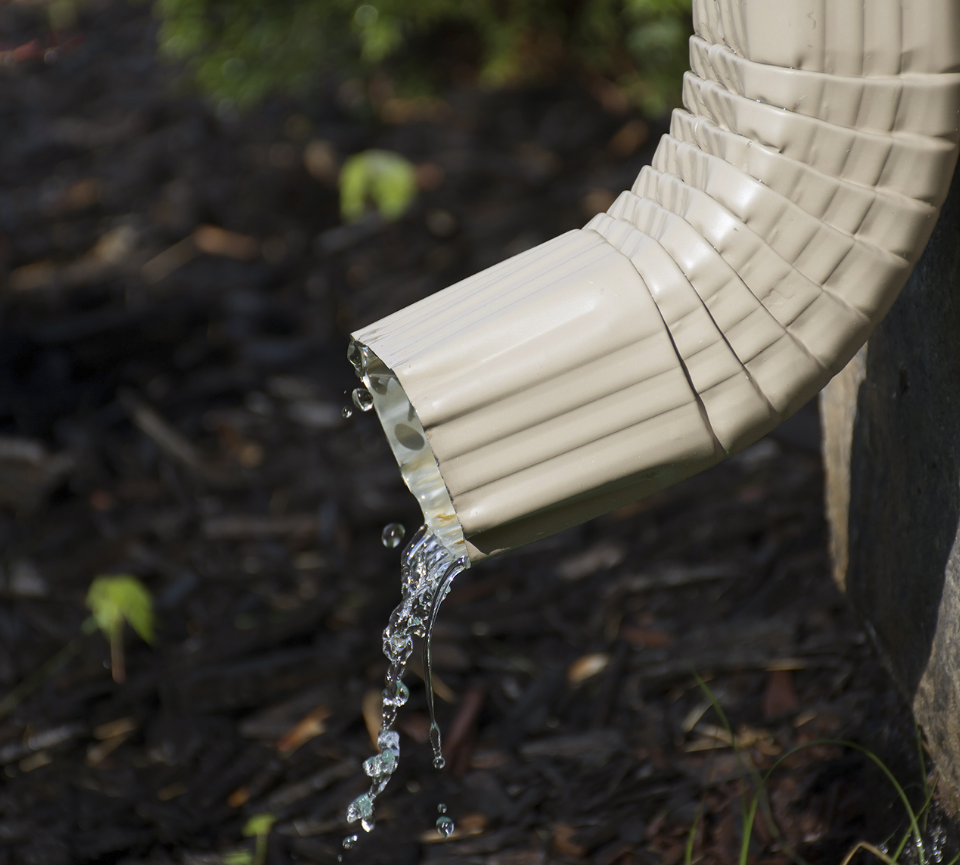
Do gutter guards actually work?
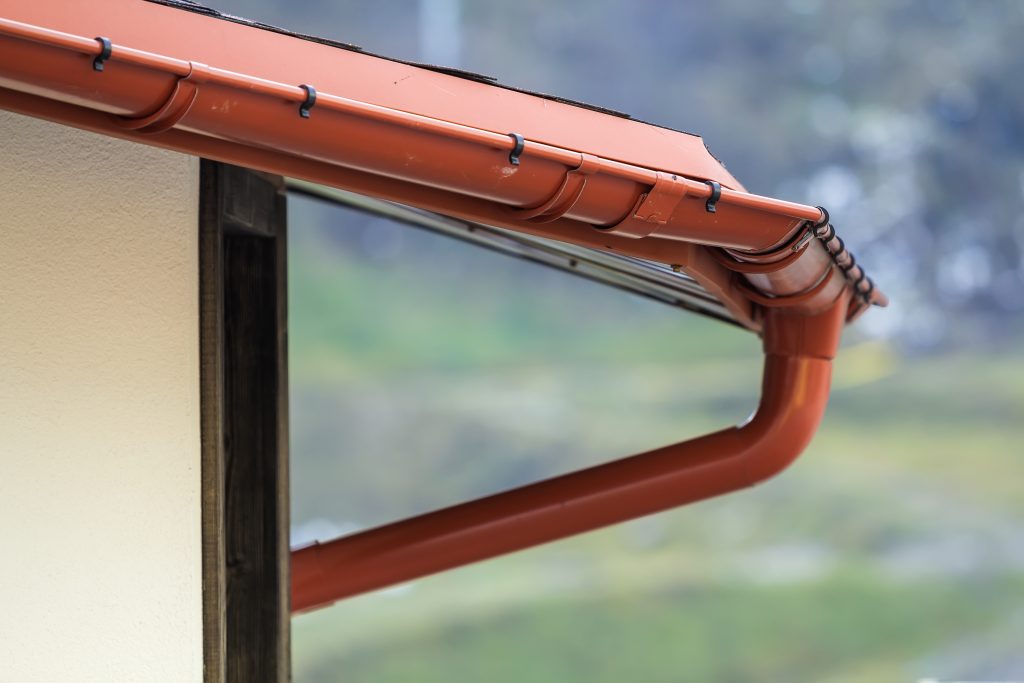
While no system will give you 100% protection from clogs or debris, a gutter guard installation will significantly reduce the number of twigs, leaves, and other debris that will enter the gutters. Smaller particles like pine needles, dirt and debris growth will still need to be cleaned from the gutters at least once or twice a year.
There are pros and cons of gutter guards to contemplate when considering the installation of a gutter guard system.
Pros
Alleviate downspouts from being clogged by debris from the gutters
Maintenance is easier due to less debris and twigs that can clog gutters
Improve the look of the home. Debris won’t collect and spill over the sides of the gutters.
No rust or corrosion due to soggy debris just sitting in the gutters
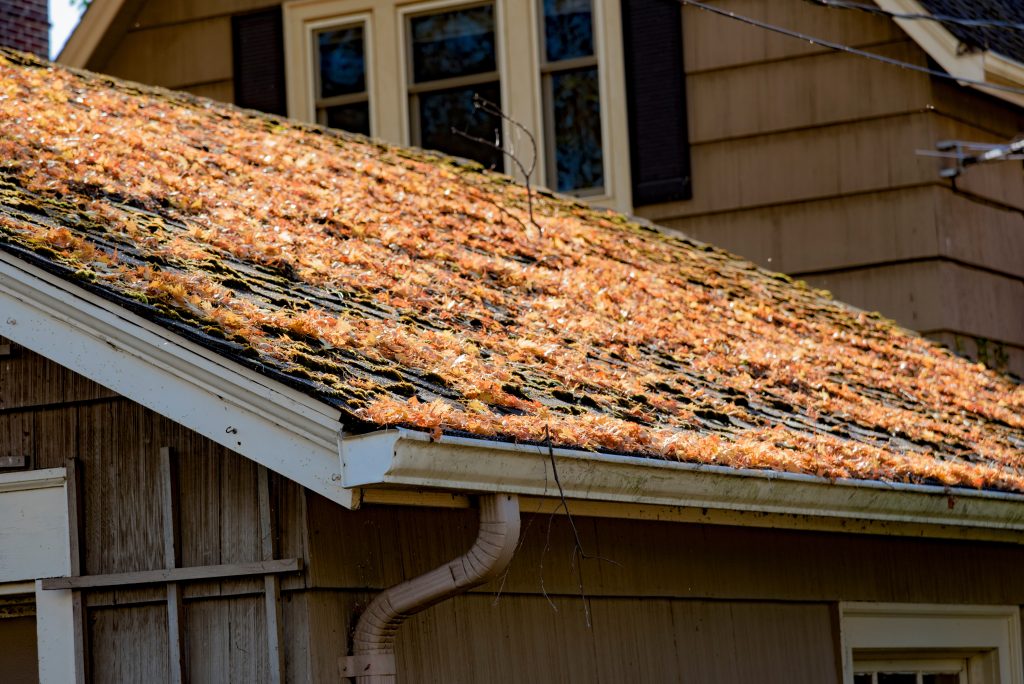
Cons
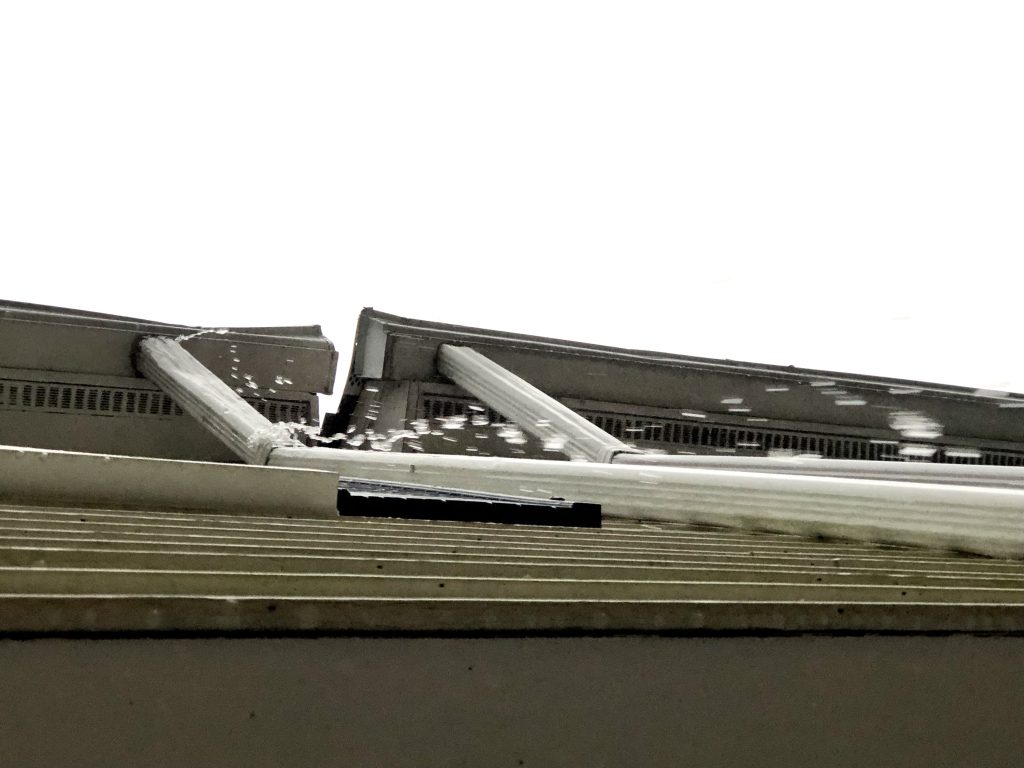
Gutters will still need to be cleaned periodically
Gutter guards may void your roof warranty. This is definitely an item to clarify with your roofing company.
Heavy rains could cause the gutters to fail due to the volume of water that cannot pass through the micro mesh gutter guard
Removal of gutter guards for cleaning can be a tedious task
As you can see, there is no perfect system when it comes to installing gutter guards. If you are considering the installation of gutter guards to your home, contacting a professional will help you decide if a gutter guard system is right for your home.
How to clean micro mesh gutter guards
Gutter guards are a great way to keep debris, branches, twigs, and other elements out of your gutters. But what many fail to remember, is that the gutter guards themselves need to be cleaned a couple times a year in order to keep them working properly and have the ability to accept the most water possible. While twigs and debris will not enter the gutter, dirt and small particles can build up over time and need to be flushed out of the gutter.
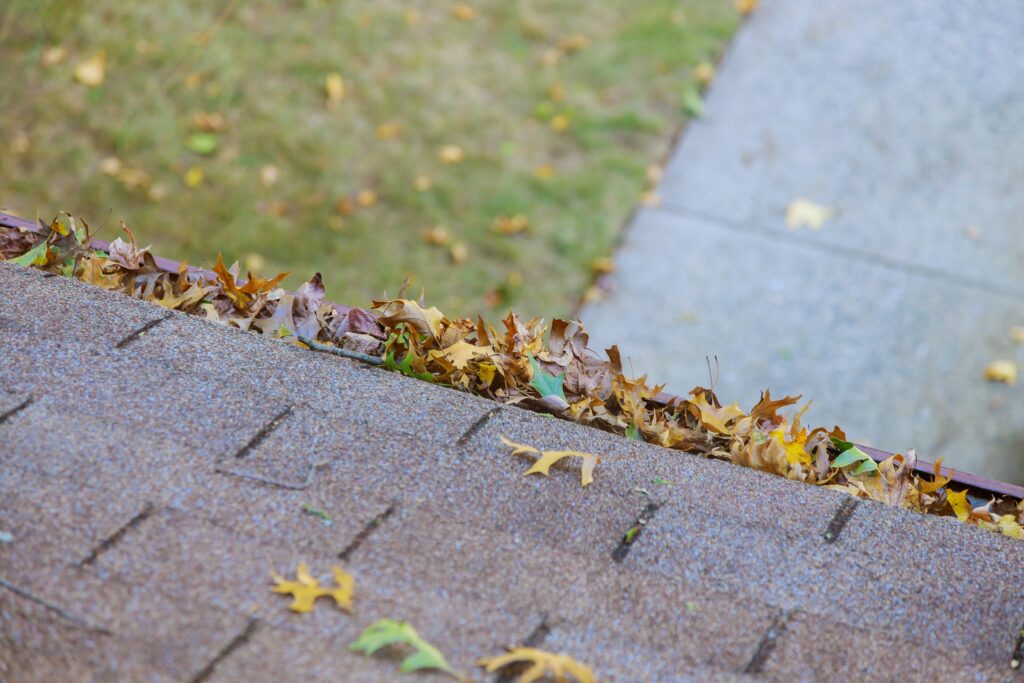
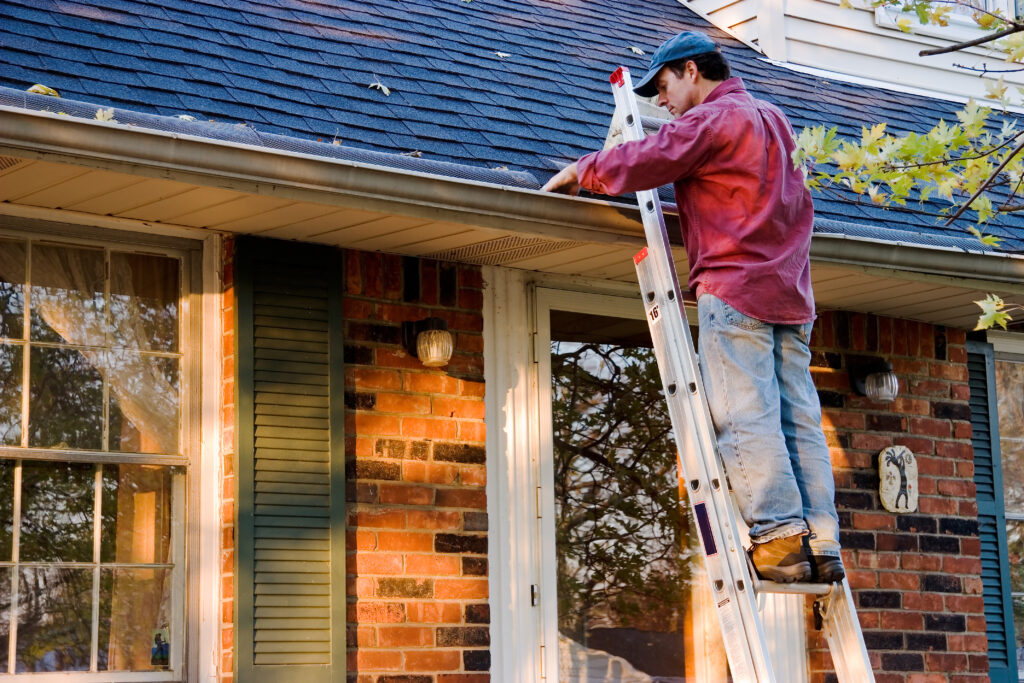
Not only will the gutter need to be cleaned, but the micro mesh gutter guard will need to be cleaned as well. Because dirt and particles are passing through the mesh, these items can become lodged into the micro mesh and clog the gutter guard. The removal of the gutter guards is the best way to clean the micro mesh screening and return your gutter guards to optimal usage. Even if your gutter guards are permanently attached, simply remove the screens and use a garden hose or high-pressure washer to remove all clogged dirt and debris. This will also allow you access to the gutter as well. Once this is complete, re-insert the screens and your gutter guards will be working as if they were new.
Which is better: LeafFilter or LeafGuard?
The advantage of being a homeowner is that you have the ability to make the choices for your home that you feel best fit your needs. But with so many companies that carry many of the same types of products, it can get very confusing as to which company has the better product. When talking about gutters, which is a better gutter guard….LeafFilter or LeafGuard? Let’s explore what these two companies have to offer.
The LeafFilter system is a more traditional gutter guard that is optimal for homeowners that have secure healthy gutters. It is a three-piece micro mesh gutter guard that attaches to your existing gutter. The micro mesh screen is made from surgical-grade stainless steel that will not only filter out large and small debris, but it will resist corrosion and rust. LeafFilter offers a limited lifetime warranty.
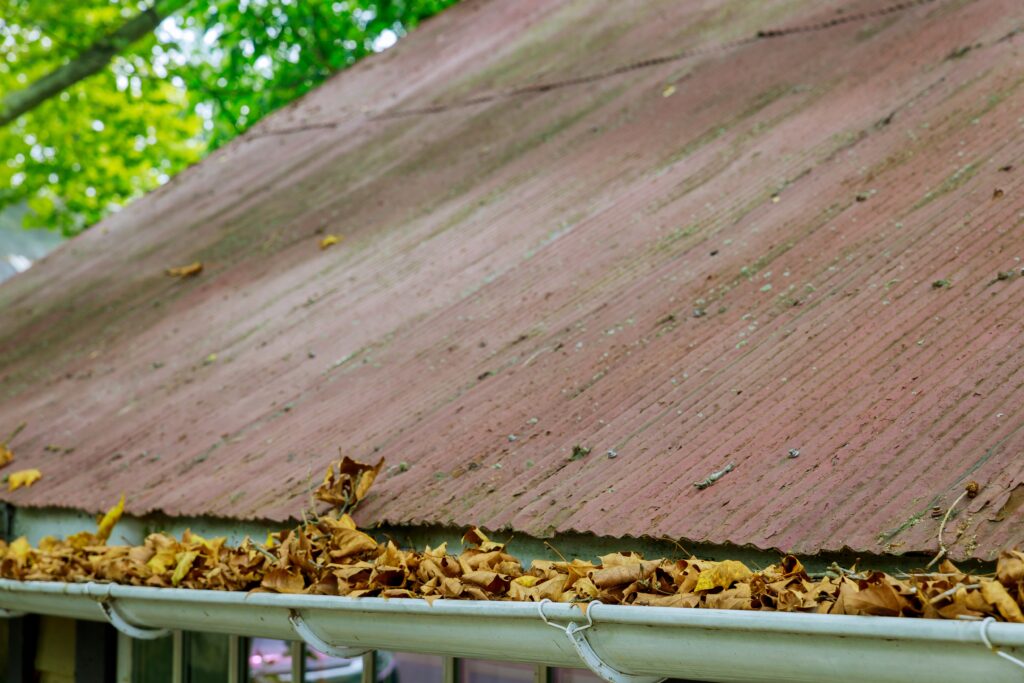
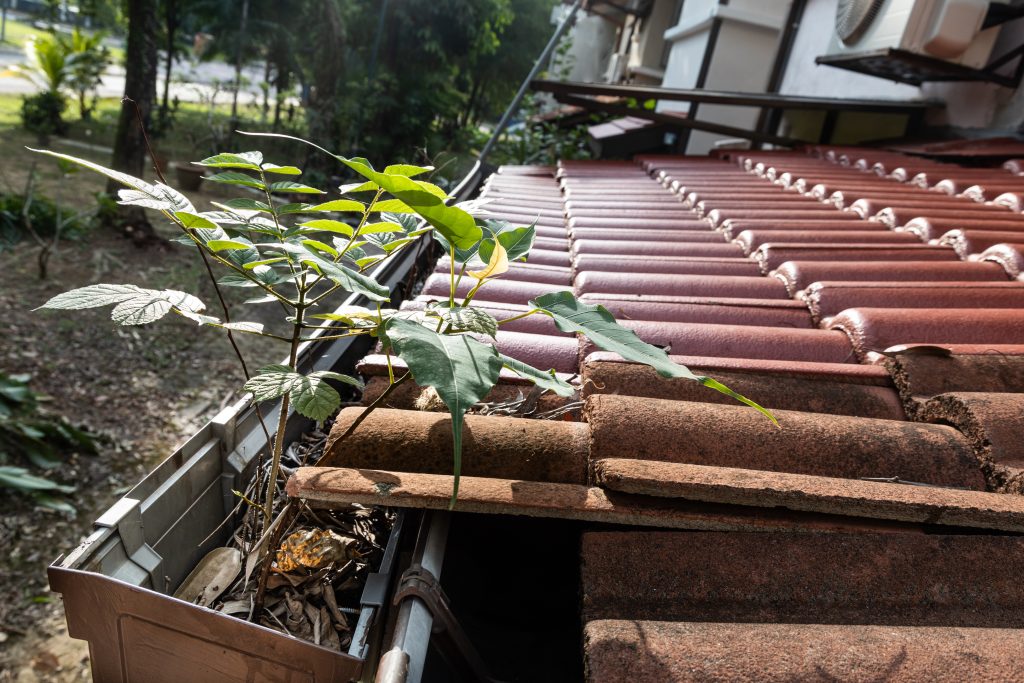
The LeafGuard is a guttering system that is a one-piece, reverse-curve gutter that will replace your existing gutters. If you are looking to upgrade or replace your current gutters, then LeafGuard may be a better option for your home. LeafGuard is constructed from aluminum that is 20% thicker than industry standard gutters and can withstand heavy rainfall of up to 32 inches per hour. LeafGuard also has a limited lifetime warranty.
An evaluation of your gutters will help you decide which system is the better gutter guard for your home. And of course, you will also want to consider the cost of installing a gutter guard system. Either LeafFilter or LeafGuard, your gutters will benefit from the elements of debris and particles that can put an added strain on any homeowner.
How do you stop heavy rainwater from jumping the gutter?
The weather is unpredictable. Trying to forecast when or if a heavy rain event is going to happen is almost impossible. So as a homeowner, you must be prepared and protect your home from all different types of weather conditions.
One way to save your gutters and downspouts from collecting excessive rainwater is to install a gutter guard system. These systems will deter and stop twigs and debris from building up in the gutter, while the micro mesh gutter guard will allow rainwater to flow through and away from the home.
When your gutters are full of debris, they will not flow or drain correctly which can cause costly repairs to your home, such as the roof, eaves, fascia, and soffits. Installing a gutter guard system will make your gutters work more efficiently on the home. Although a gutter guard system may give you sticker shock in the beginning, the long-term efficiency will far outweigh your initial cost of installation.
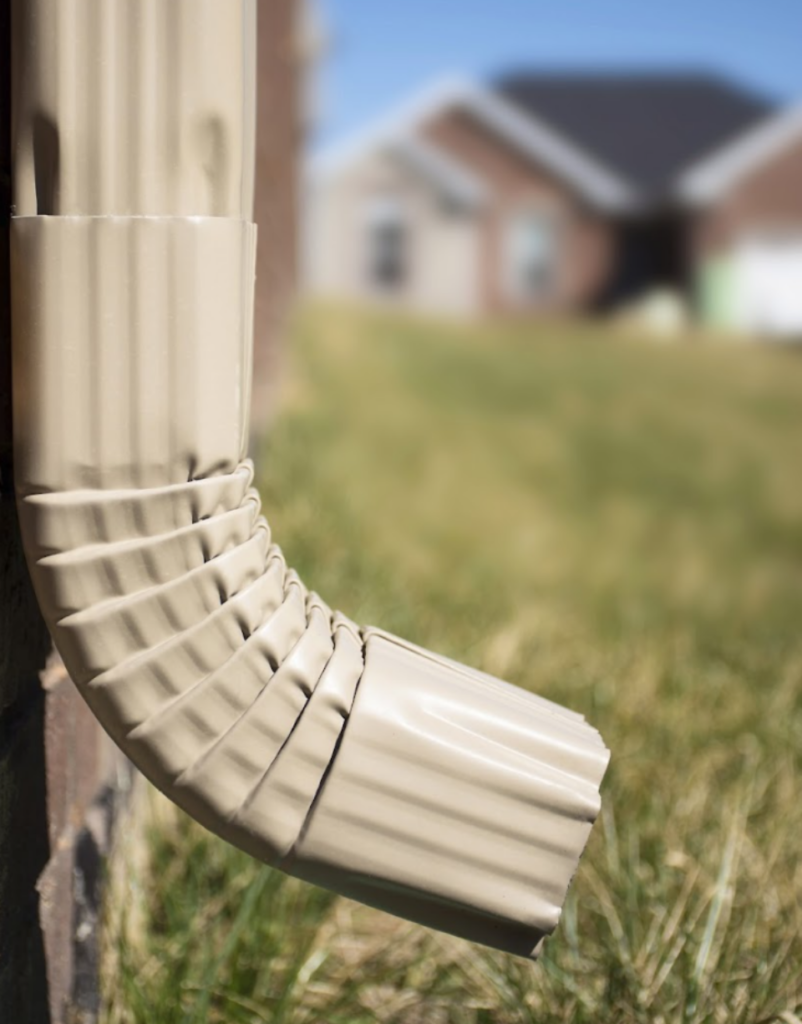
What is the difference between a gutter guard and LeafGuard?

Although gutter guards and LeafGuard are similar, and often confused as being the same, they are definitely different by design and function. Let’s explore the differences between the two.
A gutter guard system can come in many shapes and sizes. Here are the most common types of gutter guards:
- Micro mesh gutter guard – made from stainless steel sheets with an abundance of tiny holes to allow the water to drain through while capturing debris on the outside of the gutter.
- Brush guards – similar to a wire cleaning brush, large debris is unable to enter the gutter, while water is able to drain and flow to the downspouts.
- Screen rain guards – though similar to micro mesh gutter guards, these are primarily made from plastic or metal surface that is filled with holes. However, small debris can make it’s way into the gutter due to the size of the holes.
- Reverse curve gutter guards – also known as surface tension gutter guards have been around for years. Although less efficient and unaesthetically pleasing, manufacturers continue to make improvements in construction and visibility of the system.
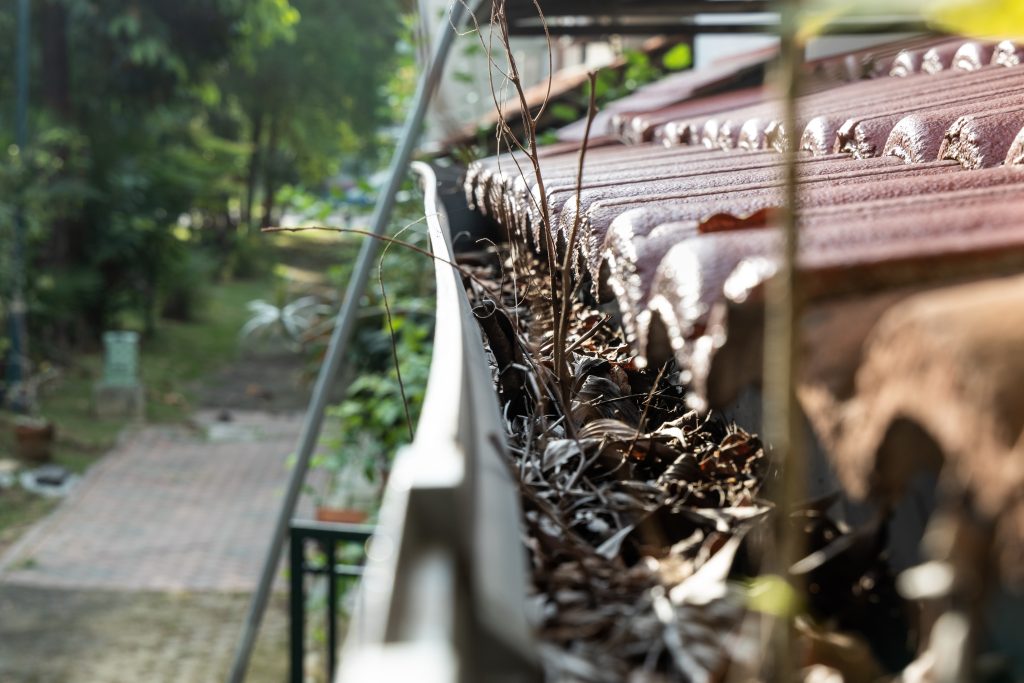
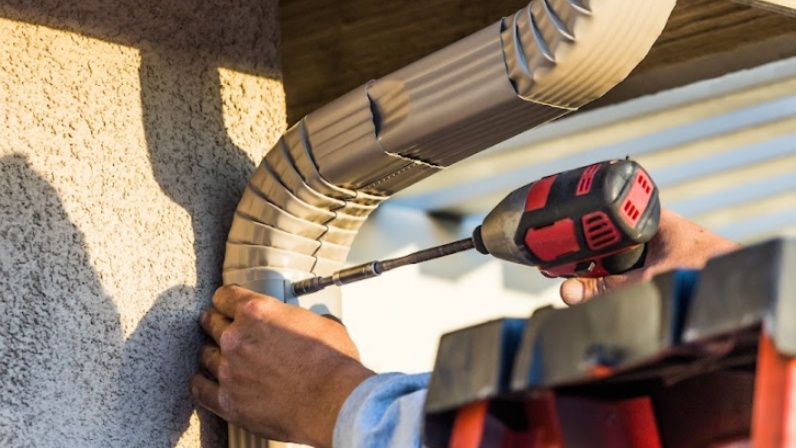
Depending upon the type of gutter guard system you choose for your home, the installation and efficiency can vary. As the homeowner, you must choose the best gutter guard system that will work for you. All of the above gutter guards will perform at some level to keep debris out and water flowing.
A LeafGuard system is also constructed to keep debris out and water flowing. However, it is manufactured as a guttering system that is one continuous aluminum piece, instead of multiple inserts. The gutter hood keeps the debris on top while letting water into the gutter. The LeafGuard system is thicker and stronger than traditional gutters, making them more durable and able to handle heavier debris and larger amounts of water.
Whether you decide to go with a gutter guard or LeafGuard, your home will be protected from debris and water.




